Lockdown has catapulted us into a screen-based “hybrid” reality, says tech pioneer Martha Lane Fox.
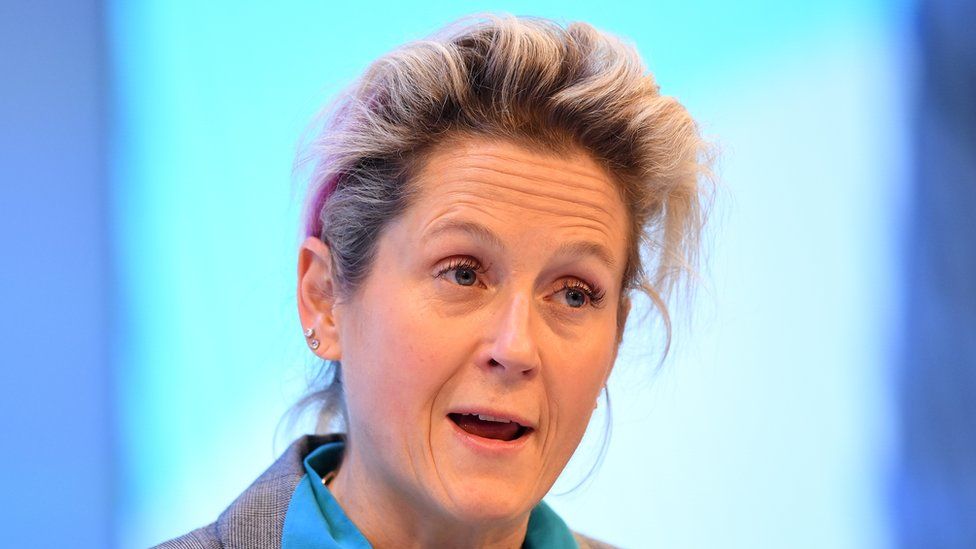
image copyrightGetty Images
Lockdown has catapulted us into a future where we live more of our lives online – but are we ready for it? And does Boris Johnson and the rest of the government understand the scale of what has happened?
“I think we’ve probably gone through about five years in the space of 18 months. That would be my guess.”
Tech pioneer Martha Lane Fox says “hybrid” reality – swapping from screen life to real life and back again so fast we hardly notice it – is here to stay, whether we like it or not.
“This isn’t a ‘Can we go forwards? Can we go backwards? Can we go sideways?’ choice. It’s happening and we need to work out how to make it work best for everyone.”
Baroness Lane Fox of Soho, to use her official title, is heading a House of Lords inquiry into life beyond Covid.
It is a mammoth undertaking, she admits when we meet, appropriately enough, via Zoom, but the first part, Living Online – the long term impact on wellbeing, has already been published.
This is a subject close to her heart.
As the co-founder, in 1998, of lastminute.com, an online travel agency that was briefly seen as Britain’s answer to Amazon, Lane Fox played a role in shaping the UK’s digital future even if, in those far-off days of dial-up internet and not-very-smart phones, it was not clear where it was all headed.
“We didn’t have too profound a thought, aged 25, about what the world might look like in 20 years’ time, if I’m being very honest, but we certainly believed there was the opportunity to create exciting new ways of helping people, and helping deliver services that perhaps before had been out of reach.”
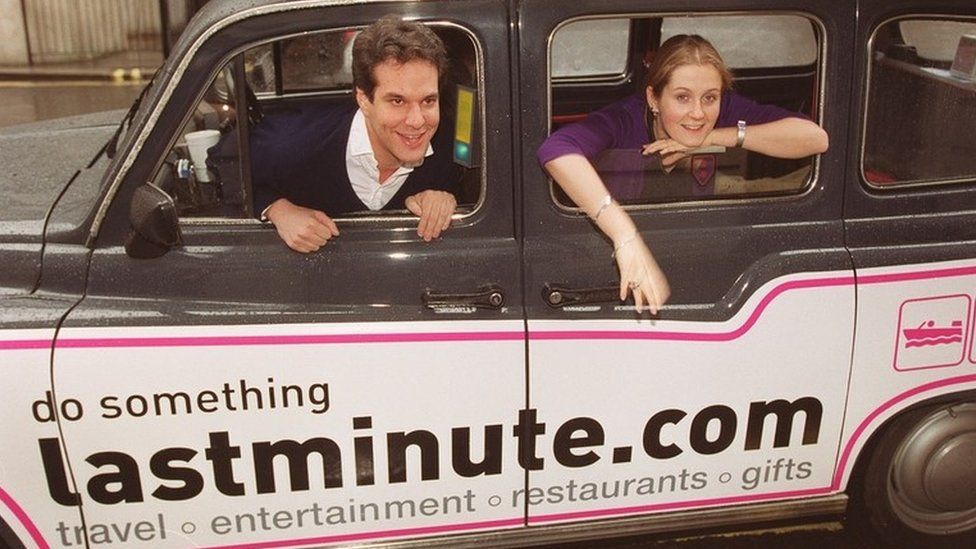
image copyrightPA Media
She remains a player in the tech world, sitting on the board of Twitter as non-executive director, but has spent much of the past two decades trying to improve the way public services work.
In 2009, Labour prime minister Gordon Brown made her the UK’s “digital champion”, a role she retained when David Cameron took over at Number 10.
She is proud of the part she played in setting up the Government Digital Service, a team of self-styled tech geeks who took an axe to thousands of official websites, bringing all government services together under a single domain name and brand – gov.uk.
But her main mission – to ensure everyone in the UK can access these services – was far from being fulfilled when she stood down in 2013, to take up a non-political crossbench seat in the Lords.
And there is a sense of unfinished business hanging over the committee’s report, which highlights research suggesting eight million people in the UK do not use the internet.
“I have a very bad scorecard,” she says. “If you’d said 10 years after that we would still have so many people who haven’t got access, for whatever reason, either because it’s too expensive, or they don’t have the skills, or they just cannot physically get a connection because of our infrastructure, I would have been really appalled.”
In a world where everything from paying for groceries to searching for a job depends on owning a smartphone, or having internet access, those without it are the real “left behind”, the report says.
It calls on the government to make a bigger effort to find out who non-internet users are, and to target more help at them.
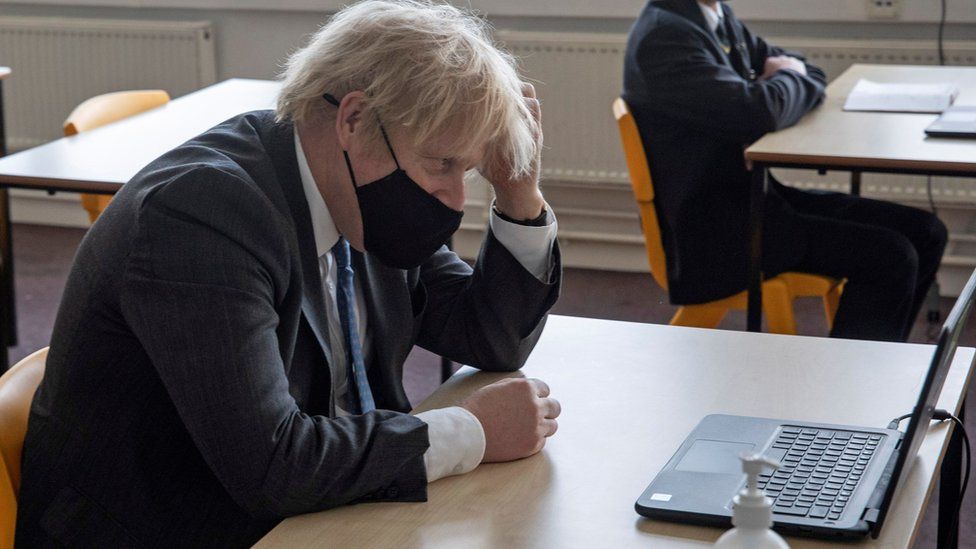
image copyrightGetty Images
But even for those with internet access, the cost of data can be prohibitive. Lane Fox’s committees spoke to low-income families, forced to home school “one, two, three, however many children, using sometimes just one smartphone for all of them”.
Others had to choose “between whether or not to buy data or to buy food”, she says.
The government is not blind to these concerns. It says it has sent more than 1.3 million laptops and tablets to schools and colleges during the pandemic, in a scheme aimed at helping disadvantaged children.
And it has launched a number of schemes aimed at training young people in basic digital skills of for post-pandemic careers in IT, although it has faced criticism for not doing enough.
The committee says the government should go further by making internet access a legal right in the UK, echoing Labour’s free broadband policy at the 2019 general election.
Lane Fox argues against providing “free” internet access, but says welfare benefits could be topped up to cover the cost of data, as they are for water and electricity bills.
To the relief of parents and children everywhere, home schooling was a temporary measure but some pandemic changes look like they will be permanent.
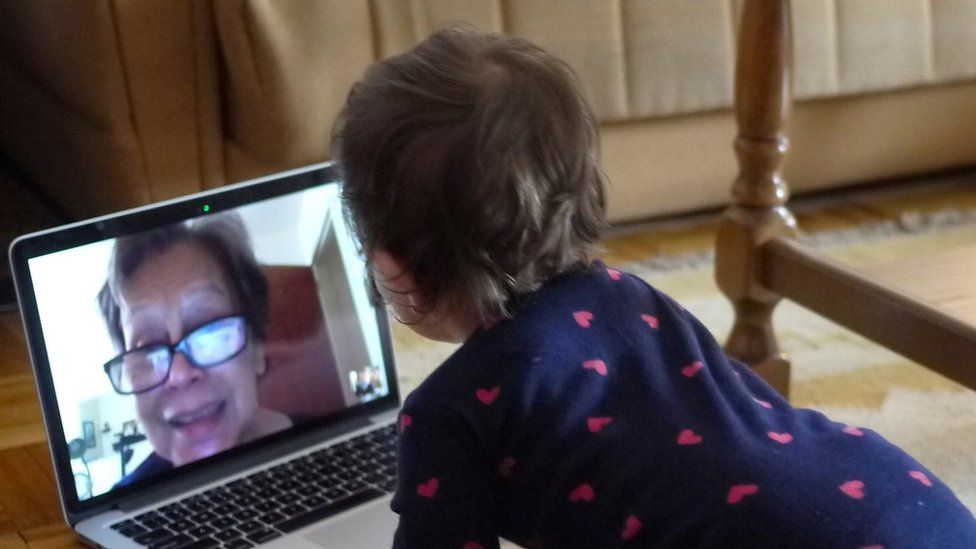
image copyrightGetty Images
Lockdown saw the end of most face-to-face appointments with GPs and other health professionals, something former Health Secretary Matt Hancock said he wanted to be the norm in many parts of the NHS.
But video calls with a doctor do not work for everyone, as the committee found when it took evidence from the mothers of babies born in lockdown.
“So many of them described how not having any face-to-face support services was so tough,” says Lane Fox.
“I can’t imagine. I have twins and if I hadn’t have been able to engage with other people when they were tiny it would have been really tough.
“So, of course, nobody wants to live in a world without any physical interaction and, for some people, it’s vital.”
She backs the government’s drive towards digital health services, arguing that “for a lot of people it will be their default of choice”.
But, she adds, “where it is never acceptable is either to exclude people from that service, or to provide a very bad one”.
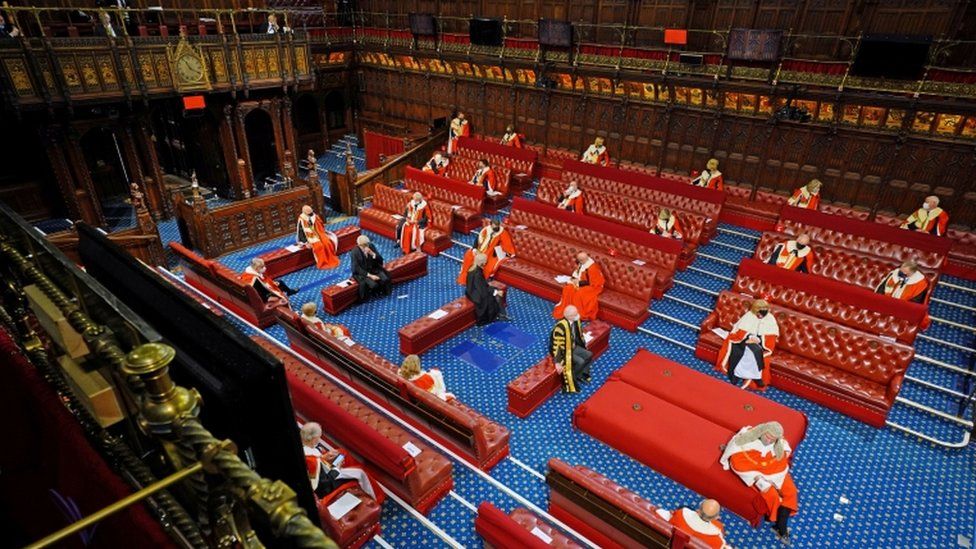
image copyrightReuters
Lane Fox is anxious not be seen as the voice of doom, or to present the future as a binary choice between life lived entirely online or a return to pre-pandemic levels of screen time.
“I really don’t believe we are moving to an entirely digital world,” she says. adding that the past 18 months have “taught us the incredible value of face-to-face interaction”.
“I have enormous optimism about technology receding, actually, in our lives and enabling more things that we want to do but with that huge caveat that we make sure, as always, that we don’t leave anyone behind.”
The government insists it is hard at work on policies for a post-pandemic world, with its taskforce on flexible working and other initiatives.
But Lane Fox says she has been around government long enough to know that nothing ever happens unless the prime minister is personally on board.
She may no longer have a hotline to Downing Street, but she is hoping Boris Johnson’s imagination will be captured by “hybrid” reality, as something that could give the UK a competitive edge.
“More than ever, post-Brexit, post-pandemic, we, as a relatively small country, with a relatively well-educated population, I believe, need to put this blended view of society right at the heart of how we reinvent ourselves for the future,” she says.
A big part of that, she argues, should be moving control of digital policy into the Cabinet Office, and, crucially, making sure those making big spending decisions understand technology better.
The speed at which her own place of work, the House of Lords, has adapted to hybrid working, shows that even the most archaic and seemingly hidebound institutions can get up to speed, she says.
“If you’d said to me a year ago, I would be voting on my iPhone I would have thought you’d been smoking pot – you would have been insane, but they did it, and they did it within a month.
“And that was really inspiring.”